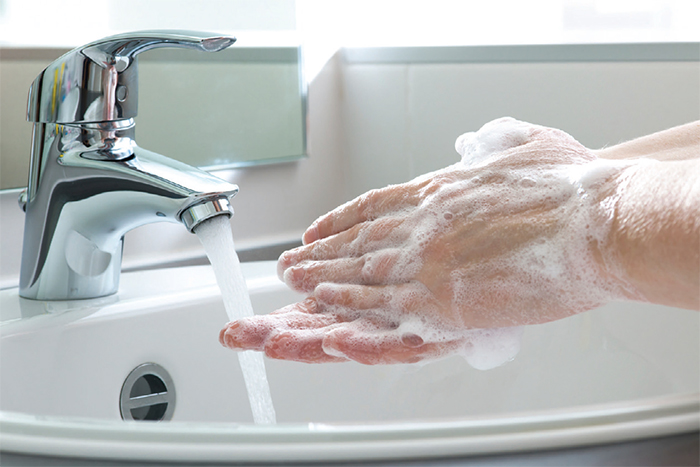
When people seek help for relieving the symptoms of a cold or flu, it is important to also give advice on basic hygiene measures that may help to prevent spread.
These include washing hands frequently with soap and hot water when the person has symptoms or comes into contact with someone with symptoms; avoiding sharing towels; and, for children with infection, discouraging sharing toys. People should use tissues to cover their mouth and nose when coughing or sneezing, and should put used tissues in a bin as soon as possible.
Ethanol-based hand sanitisers have become widely used because immediate access to soap and water may be difficult in many settings. These may contribute to reducing transmission of colds and flu.
Colds are so widespread that it makes little difference to spreading infection by taking time off nursery, school or work; attendance should be determined by how unwell people feel. People with flu are often advised to take a week off to recover and this may help reduce transmission.
Average length of common winter illnesses
- Acute otitis media: 4 days
- Acute sore throat/acute pharyngitis/acute tonsillitis: 1 week
- Common cold: 1½ weeks
- Acute rhinosinusitis: 2½ weeks
- Acute cough/acute bronchitis: 3 weeks
Source: NICE guideline – respiratory tract infections (self-limiting), CG69, July 2008
